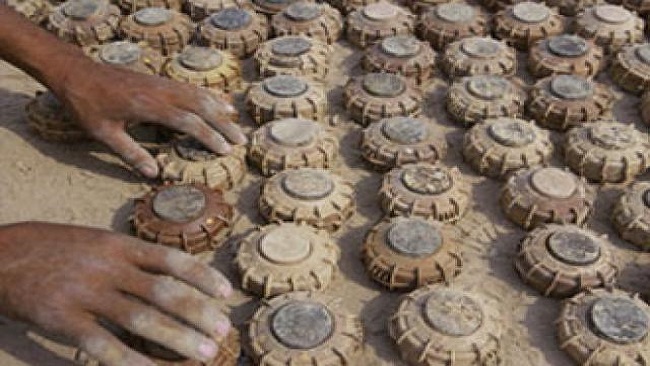Southern Cameroons Crisis: Explosives Experts Exit War Zone
A 7-man delegation of Southern Cameroonian explosives experts has finally left Southern Cameroons after a two-week training session which has helped Southern Cameroonian fighters to gain a better understanding of how to assemble and deploy explosives for greater impact.
The delegation, which comprised two Southern Cameroonian engineers from the USA, three Cameroonians who have studied chemical engineering in China and two other experts from South Africa, landed in Nigeria three weeks ago and found its way to Manyu Division and then to the North West Region of the country, has left the country and is very satisfied with the outcomes of their mission.
The head of the delegation who lives in the United States told the Cameroon Concord News Group that the days ahead would be the worst for the military if it continued its rampage in the Northwest region.
The delegation head, a graduate of engineering with specialization in the use of explosives from an American university, told the Cameroon Concord News Group’s permanent correspondent in North America on condition of anonymity that the worst was yet to happen in this war as the new training had been designed to maximize casualties on the military’s side.
He advised that explosives had proven to be more effective in the fight against the country’s military, adding that the new explosives whose reach would be greater, would deliver more results.
He stressed that the purpose of training the fighters was to ensure that more body bags headed to East Cameroon so as to push the population to rise up against a government that is sending very young people to an early grave.
“For more than four years, the people of Southern Cameroons have proven that they can resist the military’s onslaught without external help. We now have to look for new ways to deliver more rssults and make the Francophone to feel the impact of the war,” he said.
“We have seen videos of people in the South region wailing and burying their young brothers killed by our brave soldiers in Southern Cameroons. They now know that there is no winner in a war and that having armored cars does not imply winning a war, especially a war fought in a jungle,” he pointed out.
“The military thought it would just head to Southern Cameroons and kill innocent people without consequences. Our armed groups are working together and this collaboration has taken the war to the South and Center Regions of the country. We have seen them crying. It is now clear that death is for everybody. We will fight to the last person. We will stop at nothing when it comes to securing the independence of Southern Cameroons. The government thought it would carry out a short expedition but it has been bogged in a quagmire and a nightmare that will not be going away anytime soon,” he said.
“We must continue to fight. We all must continue to bring our little contribution to the table. We must continue to prove to the Yaounde dictatorship that it cannot always have its way. It went to Southern Cameroons for a two-week expedition but it will end up being there for decades and burying thousands of its young and inexperienced soldiers,” he underscored.
“I am assuring you that the boys in the field are determined. They are in high spirits. The succeses of the last four months have transformed our fighters into formidable fighters. They have brought death and destruction to the government. The Diaspora should provide much-needed help to ensure that the boys remain in good spirits,” he concluded.
Meanwhile a group of Southern Cameroonians was in Canada last week to gain a better understanding of the Canadian federal system. The group, which included a lawyer and a political scientist, said it believed that Cameroon could be federally united and indivisible if the government really wanted to solve the issue that has become a hot potato in its mouth.
Before leaving Canada, the group met with some Cameroonians who also hold that the bloodshed in Cameroon can be stopped if the warring factions accept to meet each other halfway.
Members of the group agreed that the Canadian system was ideal for a bilingual country, adding that Québec had all the rights of an autonomous province which controls its educational system and ensures that the laws that prevail in the province are those the people want.
“Canada is a good example. Our people should take a look at Canada if they really want to address those issues that have triggered the war. It does not make any sense killing each other when there are many examples to draw on to ensure that we all live in harmony,” a group member said.
“I have been to Ottawa, Montreal and Toronto and I can say that Canada is a great federation that holds the solution to our problem,” the member concluded.
By Soter Tarh Agbaw-Ebai




